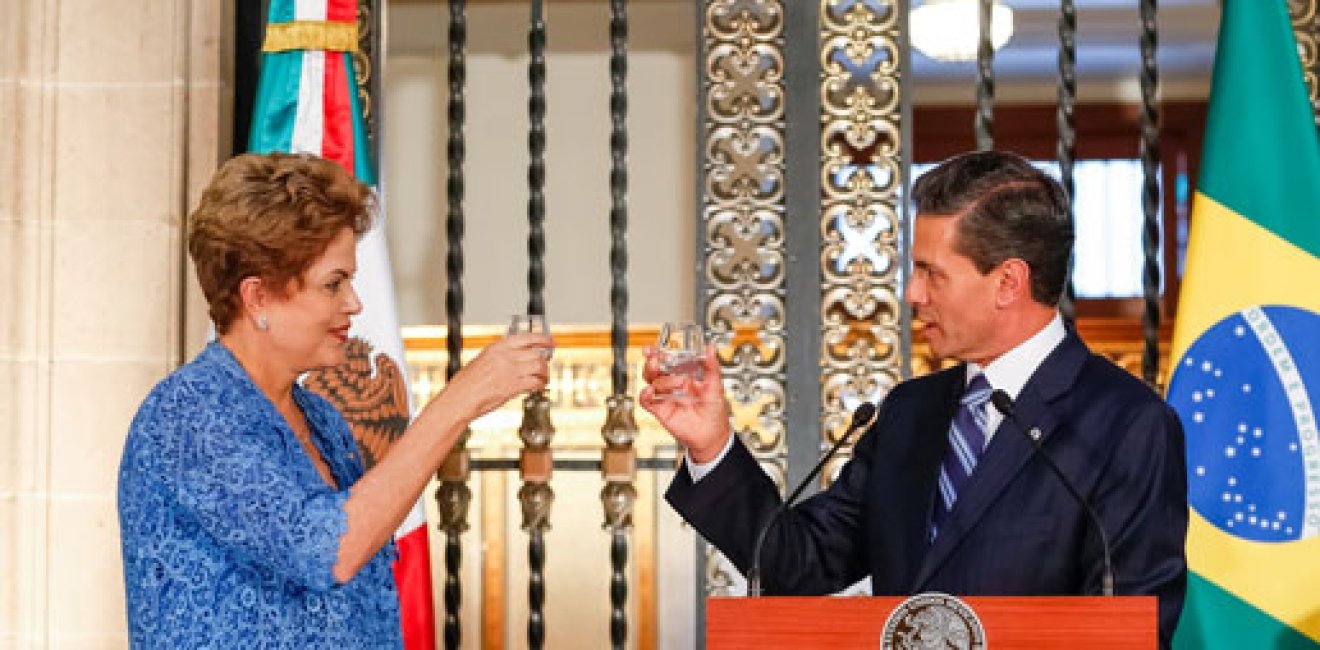A False War Fades: The End of Brazil-Mexico Rivalry?
Paulo Sotero and Duncan Wood, directors of the Brazil Institute and Mexico Institute, write for the Financial Times Beyond Brics Blog on the bilateral relationship between the two countries.
Paulo Sotero and Duncan Wood, directors of the Brazil Institute and Mexico Institute, write for the Financial Times Beyond Brics Blog on the bilateral relationship between the two countries.

For much of the past two decades, Brazil and Mexico seemed at times to be on a collision course. Diplomats from Latin America’s two largest nations were often preoccupied, if not obsessed, with a competition for an elusive role as regional leaders and players in the post-Cold War shifting global scene. The 2013 battle for the post of director general at the World Trade Organization, won by Brazilian diplomat Roberto Azevêdo over Mexican Herminio Blanco, a former trade minister, left plenty of hurt feelings. Ironically, the dispute for influence also led to convergence. The 2011 creation of the Community of Latin American and Caribbean Nations (CELAC), proposed by Mexico to affirm its Latin American identity and counter a perceived Brazilian effort to separate it from the region, was warmly embraced in Brasília as a way to project leadership by promoting formats that excluded the US.
The antagonism was deepened by choices the two countries made in the early 1990s, responding to the challenges posed by economic globalization. In 1994, Mexico joined the US and Canada in the North American Free Trade Agreement (Nafta). It was the first step in a strategy that in the following 20 years resulted in the signing of two dozen trade deals and a transformation of the Mexican economy from a commodity-based model to a manufactured goods exporting powerhouse.
By contrast, Brazil opted to build Mercosur with Argentina, Uruguay and Paraguay, a custom’s union inspired in the European model of open regionalism that, in theory, would be gradually enlarged to include all of South America. It did not. After initially significantly expanding trade in the Southern Cone, Mercosur turned out to be an obstacle to, rather than a vehicle for, the country’s integration in the world economy. Negotiations of a trade agreement between Mercosur and the European Union have lingered for more than a decade. The failure to open the Brazilian economy has had an impact: by 2013, Brazil’s merchandise trade as a percentage of GDP was only 21.9 per cent; the corresponding figure for Mexico was 61.2 per cent.



The Brazil Institute—the only country-specific policy institution focused on Brazil in Washington—aims to deepen understanding of Brazil’s complex landscape and strengthen relations between Brazilian and US institutions across all sectors. Read more


The Mexico Institute seeks to improve understanding, communication, and cooperation between Mexico and the United States by promoting original research, encouraging public discussion, and proposing policy options for enhancing the bilateral relationship. A binational Advisory Board, chaired by Luis Téllez and Earl Anthony Wayne, oversees the work of the Mexico Institute. Read more



